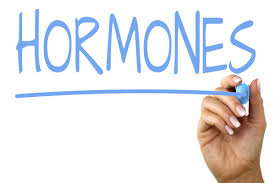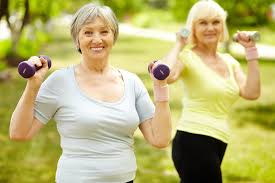
Today, we’ll be simplifying for you, the concept of menopause. What it means, when it happens, what bodily changes occur, what you experience & how to deal with it.
Menopause, by definition, is the period after you’ve gone 12 complete months without menstruation.
Internally, your hormone levels (estrogen & progesterone) drop. Which means, you no longer experience cycles and do not ovulate.
The drop in hormone levels is gradual and happens over few years. This period before menopause is termed as perimenopause. Age-wise this occurs commonly in the mid-40s. You experience irregular periods in Perimenopause.

So, this means menopause commonly happens in the early 50s.
Premature Menopause can happen due to ovarian surgery or damage.
The diagnosis of menopause can be made by a clinician through the classical symptoms that women experience. The first ones are usually vasomotor symptoms.
Further, lab tests can confirm the menopause. These include FSH, Estradiol & TSH.
Period after menopause is called as Postmenopause. The symptoms of menopause gradually decline in severity in this period.
There are a multitude of symptoms women experience during menopause, ranging from physical to mental and emotional symptoms. These have been described on our page about menopause products.

The management of menopause includes medications, hormone therapy, local applications, home remedies & lifestyle changes.
Let’s expand a bit about the lifestyle changes you can try for menopause. A balanced diet is a key part. Try to cover different vitamins and minerals in your diet, especially Vitamin D & calcium. Eat 2 portions of fruits & vegetables.
Drink 8 glasses of water everyday. Consume healthy fats in your diet. Reduce saturated fats in your diet. Limit processed foods in your daily diet and eat foods high in fiber. Do not consume spicy & very salty food.
Exercise should be a part of your daily routine, because managing weight during this period is very important. The drop in hormone levels leads to a slower metabolic rate. So, aerobic exercises are a must.

Physical activity not only helps with your weight, it has additional benefits like improved bone strength, better mood & lower chances of metabolic disorders.
Let go of smoking and reduce your alcohol intake.
The emotional symptoms of menopause can be managed with regular yoga, pranayama & meditation. Emotional support from your husband or friends is very helpful.
Complications of menopause include osteoporosis, bladder leaks, memory issues, skin wrinkles etc.
Sources:
- 1. North American Menopause Society (NAMS): Menopause FAQs and Symptom Information: https://www.menopause.org/for-women/menopauseflashes/symptoms
- 2. National Institute on Aging (NIA). "What is Menopause?" : https://www.nia.nih.gov/health/what-menopause
- 3. Woods, Nancy F. RN, PhD; Carr, Molly C. MD; Tao, Eunice Y. MD et al. Increased urinary cortisol levels during the menopause transition, Menopause: March 2006
- 4. Traci A Takahashi, Kay M Johnson - Menopause - https://pubmed.ncbi.nlm.nih.gov/25841598/
